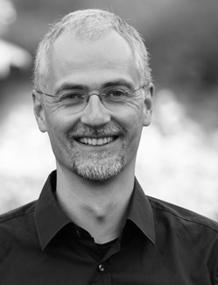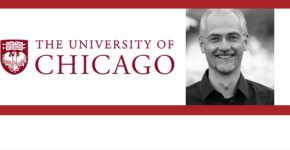 Does wisdom come from the mind or does the body have a part to play as well?
Does wisdom come from the mind or does the body have a part to play as well?
Berthold Hoecker, Associate Professor of Music and the Humanities at the University of Chicago, discusses how being in tune with both mind and body can make for a wiser individual.
Berthold Hoeckner is a music historian specializing in 19th- and 20th-century music. Research interests include aesthetics, Adorno, music and literature, film music and visual culture, the psychology and neuroscience of music. Awards and fellowships include the Alfred Einstein Award of the American Musicological Society (1998), a Humboldt Research Fellowship (2001/2), a Mellon New Directions Fellowship (2006/7), and a Faculty Fellowship at the Franke Institute of the Humanities (2012/13). He was Lead Researcher in a three-year research project on somatic wisdom at the Center of Social and Cognitive Neuroscience and is currently Principal Investigator in a new research project studying the relationship between wisdom and humility Programming the Absolute: Nineteenth-Century German Music and the Hermeneutics of the Moment, was published by Princeton University Press in 2002; Apparitions: New Perspectives on Adorno and Twentieth-Century Music by Routledge in 2006. He has taught at Chicago since 1994.
Wisdom, Meditation and Ballet Too
For as long as philosophers have pondered wisdom, it has been associated with knowledge, compassion, and humility. Our research was motivated by these ancient conceptualizations of wisdom, but also by a challenge to understand how an individual may develop the set of skills that lead to practical wisdom through regular life experience. Given its link with compassion and knowledge, and the movement over the past several years in psychology toward embodied cognition—we looked at meditation and also explored the possibility that wisdom may be cultivated through somatic—physical—practices that focus on strengthening the mind-body connection.
We asked meditators across the country to fill out wisdom related questionnaires and to provide an estimate of the number of years of experience with meditation. This procedure was repeated for practitioners of the Alexander Technique and the Feldenkrais Method. These practices are generally performed as physical therapy, or to achieve physical goals. If experience in all of these practices was linked with wisdom, one could argue that all practices would have the same effect. To address this, we also included a physical practice as a control group, one for which there was no hypothesized link to wisdom: classical ballet.
As expected, we discovered that meditation was linked with wisdom, though no such link was found with the two somatic groups. To our surprise, wisdom was also linked with ballet experience. Ballet experience appeared to be making dancers wiser, but not through the same path. Perhaps dancers, through years of rigorous physical and mental training, develop a heightened sensitivity to their bodies, cultivating a more sensitive ‘gut’ feeling about life and the decisions that lead to greater well-being.
The most important implication of this research is that wisdom may be trained as a skill. As we gain a better understanding of the complex paths to wisdom, we hope that this study will have contributed to a wiser global society.



Comments
2 responses to “Berthold Hoeckner, University of Chicago – Wisdom, Meditation and Ballet Too”